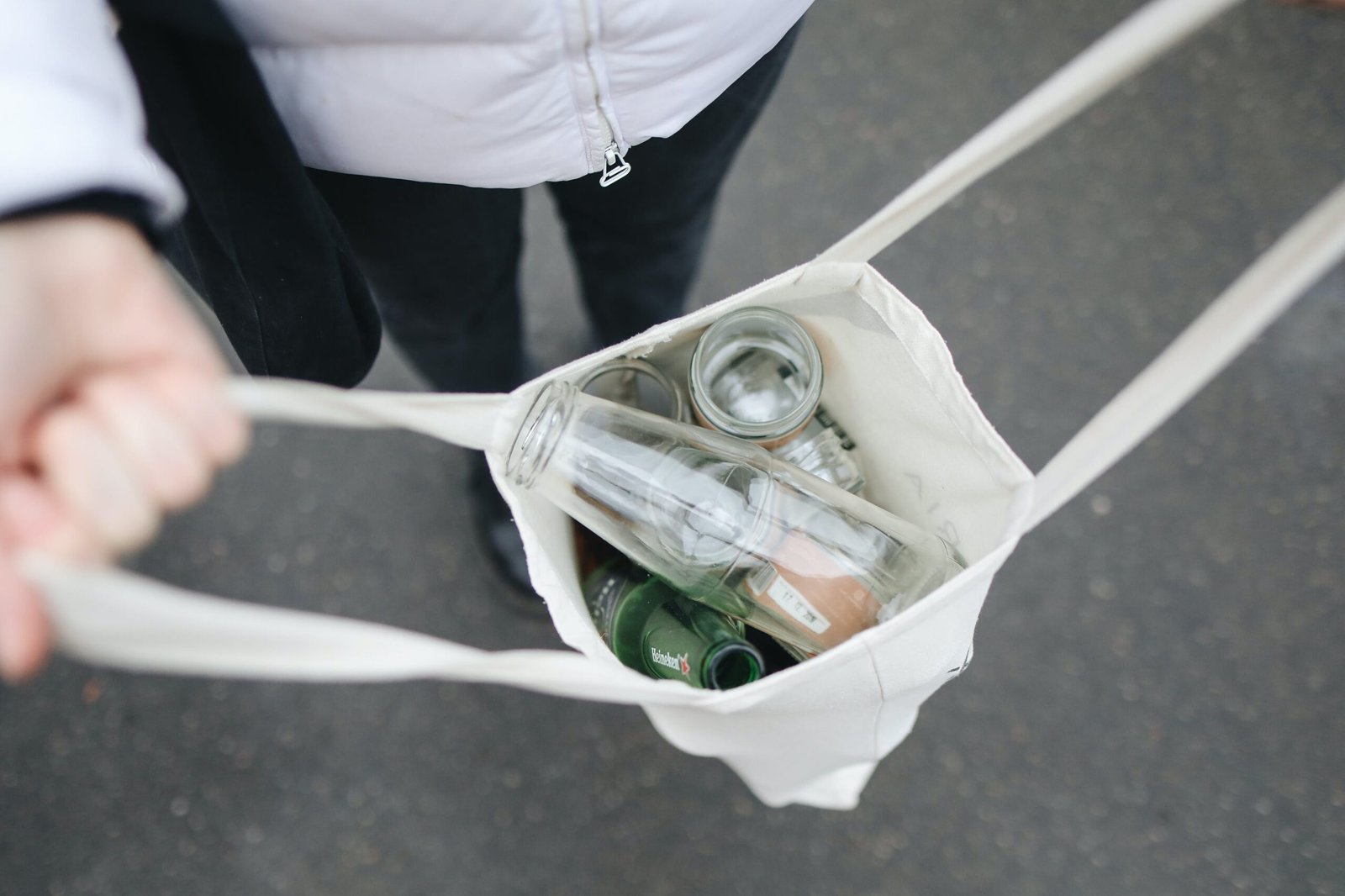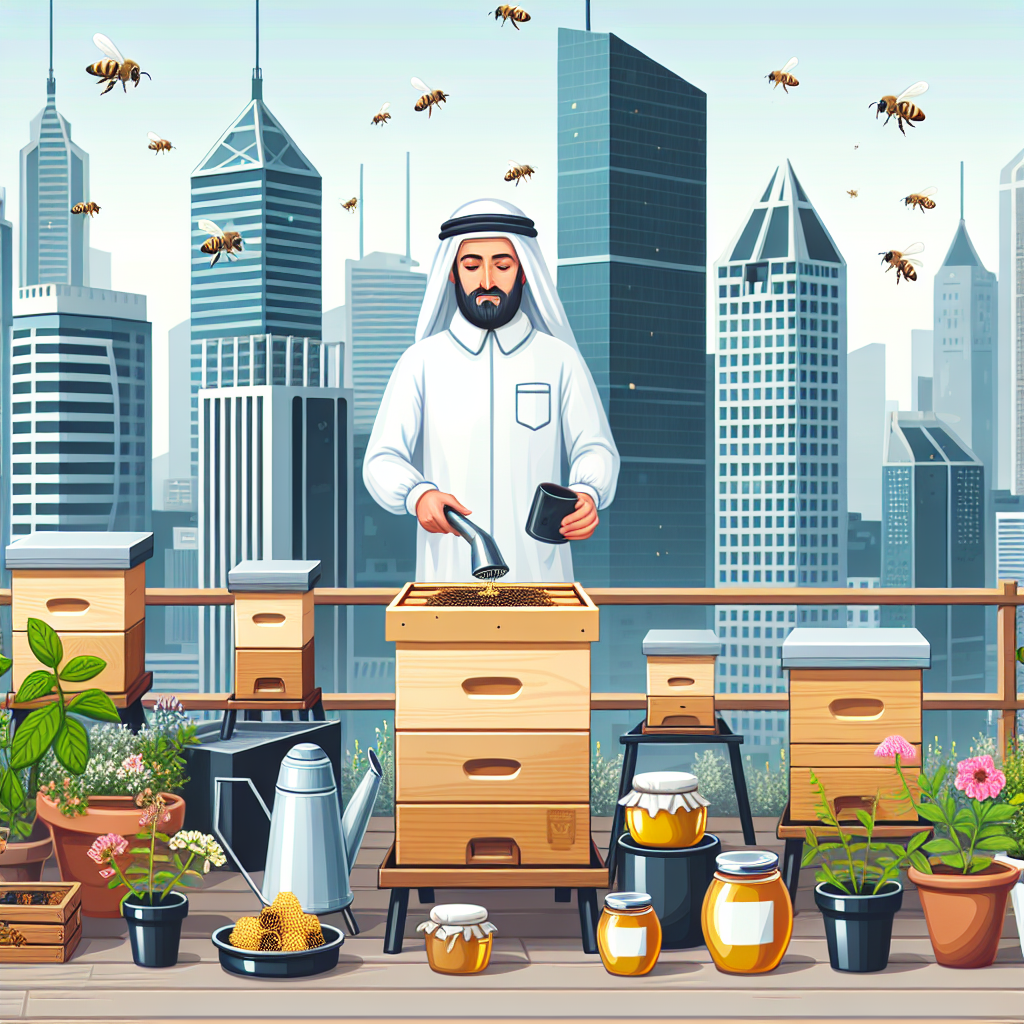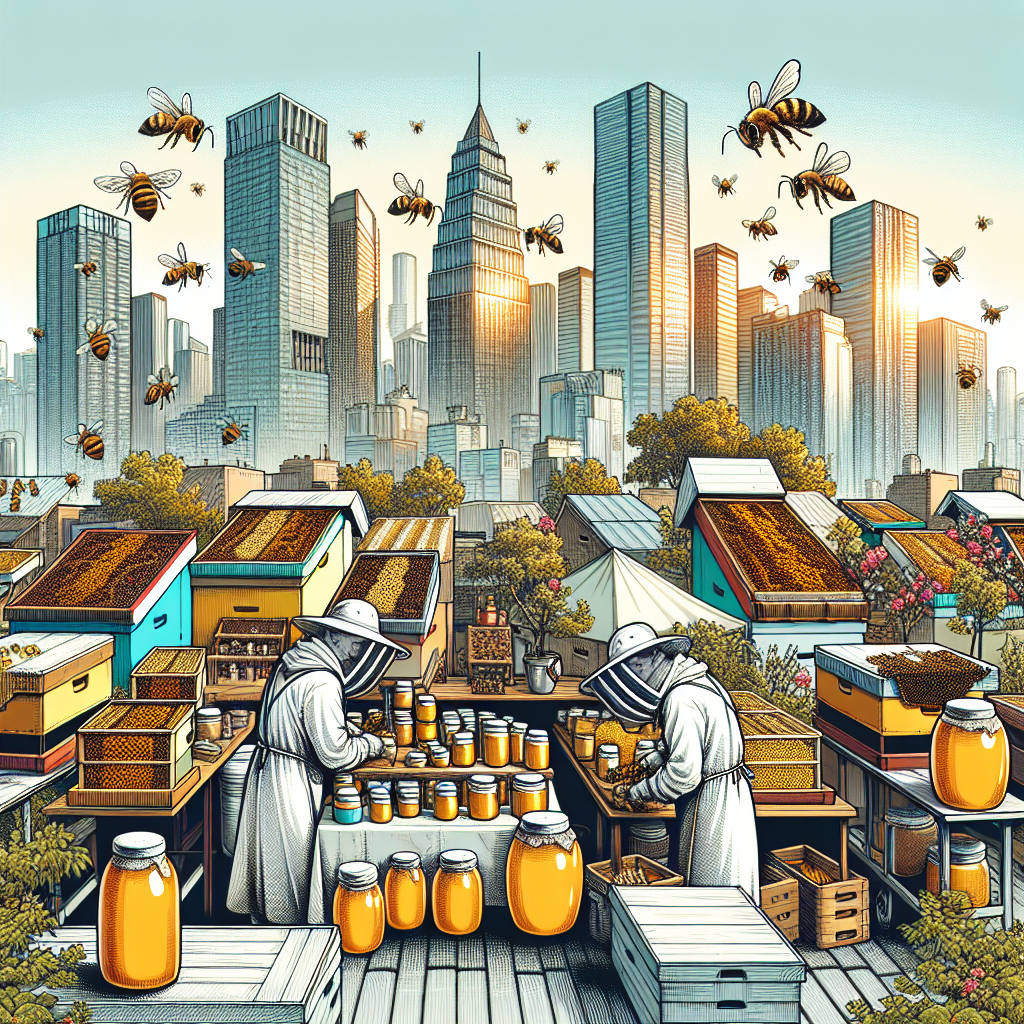
Did you know that urban beekeeping not only helps in the pollination of plants but also opens up a world of sustainable economic opportunities? With the increasing demand for honey and other bee-related products, urban beekeepers have found themselves in a thriving market. From setting up rooftop hives to selling raw honey and beeswax products, these beekeepers are not only making a positive impact on the environment but also enjoying the benefits of a profitable business. So, if you’re interested in exploring sustainable economic opportunities while making a difference in your city, urban beekeeping might just be the perfect venture for you.

1. Honey Production
Honey production is one of the main economic opportunities for urban beekeepers. With the rise in awareness of the health benefits and delicious taste of honey, there is a growing demand for this golden liquid.
1.1 Types of Honey
Urban beekeepers have access to a wide variety of honey types due to the diverse range of flowering plants found in cities. From the delicate and light acacia honey to the robust and rich buckwheat honey, there is a flavor profile for every preference. This variety allows urban beekeepers to cater to the different tastes and preferences of their customers.
1.2 Market Demand
The market demand for honey continues to increase as more people are seeking natural alternatives to processed sugars. Honey is not only a sweetener but also boasts numerous health benefits, such as its antioxidant properties and potential antibacterial effects. This growing market demand presents a significant economic opportunity for urban beekeepers who can provide locally sourced, high-quality honey.
1.3 Value-Added Products
In addition to selling raw honey, urban beekeepers can expand their business by offering value-added products. These products could include honey-based skincare products, such as lip balms and moisturizers, or artisanal honey-infused products like honey mustard and honey-soaked nuts. By diversifying their product range, urban beekeepers can tap into different market segments and increase their revenues.
1.4 Diversification of Honey Products
To further enhance their economic potential, urban beekeepers can diversify their honey products. This includes experimenting with different flavors by infusing honey with natural ingredients like herbs, spices, or fruits. The creation of unique honey blends can attract niche markets, such as gourmet food enthusiasts or health-conscious consumers. By offering a range of diversified honey products, beekeepers can effectively distinguish themselves from the competition and capture a broader customer base.
2. Pollination Services
Aside from honey production, urban beekeepers can also provide vital pollination services to farmers and gardeners.
2.1 Importance of Pollination
Pollination is a critical process in the reproduction of plants, and bees play a crucial role in this ecosystem service. By transferring pollen from the male to the female parts of flowers, bees enable plants to produce fruits, seeds, and new generations of plants. Without proper pollination, the yield and quality of crops would significantly decline, resulting in economic losses for farmers and reduced availability of food for consumers.
2.2 Increased Crop Yield
Urban beekeepers can collaborate with farmers to enhance crop yields through targeted pollination services. The presence of beehives near agricultural fields can increase pollination rates, leading to larger and more uniformly shaped fruits, higher crop yields, and increased farm profitability. By offering their bees’ pollination services, urban beekeepers can not only support farmers but also generate a sustainable income stream for themselves.
2.3 Contracting with Farmers
To provide pollination services, urban beekeepers can establish contracts with farmers. These contracts can specify the number of beehives needed, the duration of the pollination period, and the agreed-upon compensation. By building strong relationships with farmers, beekeepers can secure a stable and recurring source of income while contributing to the success of local agricultural endeavors.
2.4 Seasonal Pollination
Pollination services can extend throughout the farming season as different crops require varying pollination periods. Urban beekeepers can strategically place their beehives near farms with crops that bloom at different times, allowing for continuous pollination support. In addition to honey production, this seasonal pollination work empowers beekeepers to diversify their income and maintain a stable business year-round.

3. Beekeeping Equipment
The production and sale of beekeeping equipment and supplies present another lucrative opportunity for urban beekeepers.
3.1 Manufacturing and Sales
Urban beekeepers can explore the manufacturing and sale of beekeeping equipment, ranging from hive components to protective gear for beekeepers. By producing these essential tools, beekeepers can not only meet their own needs but also cater to the wider beekeeping community. Through local and online sales, they can establish a customer base and generate income from the sale of these products.
3.2 Innovation and Technology
Advancements in technology have revolutionized beekeeping practices, and urban beekeepers can capitalize on this by developing innovative solutions for beekeeping challenges. This includes designing and manufacturing modern hive designs that promote bee health and productivity, as well as developing tools and devices that aid in hive management and monitoring. By embracing innovation and technology, urban beekeepers can differentiate themselves in the market while contributing to the advancement of sustainable beekeeping practices.
3.3 Beekeeping Supplies
In addition to equipment, urban beekeepers can also supply fellow beekeepers with the necessary supplies for maintaining healthy and thriving hives. This can include items such as hive coatings, nutritional supplements for bees, and specialized pest management solutions. By providing beekeepers with high-quality supplies, urban beekeepers can establish themselves as trusted suppliers within the beekeeping community, further expanding their economic potential.
3.4 Training and Education
Urban beekeepers possess valuable knowledge and expertise that can be shared through training and education. By offering workshops and training sessions on various aspects of beekeeping, such as hive management, honey extraction, and pest control, beekeepers can not only generate income but also empower others to pursue beekeeping as a sustainable livelihood. This transfer of knowledge not only benefits aspiring beekeepers but also strengthens the beekeeping community as a whole.
4. Bee Venom and Propolis
Bee venom and propolis have gained recognition in the medicinal and cosmetic industries, presenting urban beekeepers with additional economic opportunities.
4.1 Medicinal and Cosmetic Uses
Bee venom, known for its potential anti-inflammatory and pain-relieving properties, is used in various medicinal applications, such as arthritis treatments and skincare products. Propolis, a resin-like substance bees collect from tree buds, has antimicrobial and antioxidant properties and is used in cosmetics, dietary supplements, and herbal remedies. Urban beekeepers can explore the collection and sale of bee venom and propolis to cater to the growing demand for natural and sustainable ingredients in these industries.
4.2 Market Trends
The global market for bee venom and propolis is experiencing substantial growth due to the increasing consumer preference for natural products. This presents an attractive opportunity for urban beekeepers to tap into these markets and create value-added products with bee-derived ingredients. By staying abreast of market trends and consumer demands, beekeepers can position themselves as suppliers of high-quality, sustainably sourced bee venom and propolis.
4.3 Value-Added Products
Urban beekeepers can further leverage the bee venom and propolis market by developing and marketing their own value-added products. This could include items like bee venom creams, propolis-infused cosmetics, or dietary supplements. By incorporating these bee-derived ingredients into their product range, beekeepers can diversify their offerings and capture new market segments that value natural and sustainable solutions for health and beauty.
4.4 Sustainable Harvesting Practices
When venturing into the collection of bee venom and propolis, it is essential for urban beekeepers to prioritize sustainable harvesting practices. This includes ensuring the well-being of the bees by employing ethical methods and minimizing disturbance to the hive. By practicing sustainable collection techniques, beekeepers can promote the long-term health and resilience of their bee colonies while maintaining the integrity of their bee venom and propolis products.

5. Education and Workshops
As urban beekeeping gains popularity, there is an increasing demand for education and workshops to learn about the art and science of beekeeping.
5.1 Urban Beekeeping Classes
One economic opportunity for urban beekeepers is to offer urban beekeeping classes. These classes can cater to beginners who want to learn the basics of beekeeping, as well as more advanced enthusiasts who want to expand their knowledge and skills. By sharing their expertise and passion for beekeeping, urban beekeepers can empower others to embark on their own beekeeping journey, generating income while fostering a community of passionate beekeepers.
5.2 Beekeeping Workshops
In addition to classes, urban beekeepers can organize workshops on specific topics within the beekeeping realm. These workshops may cover subjects such as hive inspection techniques, queen bee rearing, or honey extraction methods. By providing hands-on learning experiences and expert guidance, beekeepers can equip participants with practical skills to excel in their beekeeping endeavors. The workshop fees can serve as an income stream for urban beekeepers.
5.3 Educational Resources
Creating and selling educational resources is another avenue for urban beekeepers to generate income. This can include publishing books, e-books, or online courses on various aspects of beekeeping. By sharing their knowledge and experiences through these resources, beekeepers can reach a broader audience and establish themselves as authorities in the field. The sale of educational resources can provide a passive income stream for urban beekeepers while simultaneously benefitting aspiring and experienced beekeepers alike.
5.4 Collaboration with Organizations
Urban beekeepers can collaborate with educational institutions, community centers, and environmental organizations to offer beekeeping education programs. By partnering with these organizations, beekeepers can expand their reach, access new audiences, and secure funding or resources to support their educational initiatives. Collaborations also foster community engagement and enable urban beekeepers to make a positive impact beyond their own businesses.
6. Bee Tours and Experiences
Bee tours and experiences provide a unique and engaging way for urban beekeepers to educate the public about the fascinating world of bees.
6.1 City Beekeeping Tours
Urban beekeepers can organize guided beekeeping tours that showcase the inner workings of beehives. These tours offer participants the opportunity to observe bees up close and learn about their remarkable behaviors, the honey production process, and the importance of bees in the ecosystem. By charging a fee for these tours, urban beekeepers can generate income while fostering public awareness and appreciation for bees and beekeeping.
6.2 Honey Tasting Events
Honey tasting events allow urban beekeepers to share the diverse flavors and characteristics of different honey types with the public. Participants can sample various honeys, learn about their unique flavor profiles, and gain insights into the factors that influence honey’s taste. Honey tasting events provide both an enjoyable experience for attendees and an avenue for urban beekeepers to promote and sell their honey products.
6.3 Beekeeping Experiences
For those curious about the hands-on experience of beekeeping without fully committing to maintaining their own hives, urban beekeepers can offer beekeeping experiences. These experiences allow participants to don protective gear, handle beekeeping tools, and participate in hive inspections under the guidance of an experienced beekeeper. By offering these immersive experiences, urban beekeepers can give people a taste of the beekeeping journey while generating income from this unique offering.
6.4 Educational Demonstrations
In public settings such as fairs, festivals, or farmers markets, urban beekeepers can set up educational demonstrations to engage and educate the public. These demonstrations can include hive displays, beekeeping equipment exhibits, and talks on the importance of bees and sustainable beekeeping practices. By sharing their knowledge, urban beekeepers play a pivotal role in raising awareness about the significance of bees and inspiring individuals to take action in supporting pollinators.

7. Beehive Products and Byproducts
In addition to honey, beehives produce several valuable products and byproducts that present economic opportunities for urban beekeepers.
7.1 Beeswax
Beeswax is a versatile material with various applications. Urban beekeepers can collect and sell beeswax, which can be used in candlemaking, cosmetics, woodworking, and even as a natural alternative to plastic wrap. By offering high-quality beeswax, beekeepers can cater to the growing demand for sustainable and eco-friendly materials, creating a niche market for their beehive products.
7.2 Royal Jelly
Royal jelly is a nutritious substance produced by bees and is commonly used as a dietary supplement due to its potential health benefits. Urban beekeepers can collect royal jelly and sell it to natural health stores, apothecaries, or directly to consumers. By ensuring ethical and responsible collection practices, beekeepers can tap into the health and wellness market while maintaining the well-being of their bee colonies.
7.3 Bee Pollen
Bee pollen is a nutrient-rich food source that can be harvested from beehives. It is often consumed as a dietary supplement or used in natural health products. Urban beekeepers can collect and package bee pollen for sale, providing customers with a natural and nutritious addition to their diets. By emphasizing the freshness and quality of their bee pollen, beekeepers can establish themselves as trusted suppliers in the health and wellness industry.
7.4 Beehive Rental
For those who may not have the space or desire to maintain their own beehives but still want to contribute to pollinator conservation, urban beekeepers can offer beehive rental services. These services involve placing honeybee colonies in the yards or gardens of individuals or businesses, allowing them to enjoy the benefits of increased pollination while supporting urban beekeepers. Beehive rental provides an alternative income stream for urban beekeepers while promoting bee conservation and community engagement.
8. Community Development
Urban beekeeping not only provides economic opportunities but also contributes to community development.
8.1 Urban Revitalization
Beekeeping can play a role in the revitalization of urban areas by transforming vacant lots, rooftops, or unused spaces into thriving beekeeping sites. These green spaces not only benefit pollinators but also enhance the aesthetic appeal of urban environments. Urban beekeepers can lead the way in urban revitalization efforts by creating vibrant and sustainable beekeeping hubs that inspire and engage the broader community.
8.2 Social Impact
Beekeeping has the potential to make a positive social impact by providing opportunities for skill development, empowerment, and inclusivity. Urban beekeepers can extend their economic opportunities by offering mentorship programs for aspiring beekeepers or partnering with local organizations that support marginalized communities. By fostering a sense of belonging and promoting skill-building through beekeeping, urban beekeepers can contribute to social cohesion and empowerment.
8.3 Job Creation
The growth of urban beekeeping translates into job creation opportunities. Beekeepers can expand their operations and create employment in various areas such as hive management, honey processing, equipment manufacturing, or educational programs. By generating employment, urban beekeepers contribute to local economies and provide livelihood opportunities for individuals passionate about bees and sustainability.
8.4 Community Engagement
Engaging the community is a crucial aspect of urban beekeeping. Urban beekeepers can organize community events, collaborate with local schools and educational institutions, or establish partnerships with environmental organizations to raise awareness about the importance of bees and sustainable beekeeping practices. By fostering a sense of collective responsibility and encouraging community participation, urban beekeepers ensure the long-term viability of their own operations while promoting the well-being of bees and the wider ecosystem.

9. Sustainable Beekeeping Practices
To ensure the viability of their businesses and contribute to pollinator conservation, urban beekeepers must embrace sustainable beekeeping practices.
9.1 Organic Beekeeping
Many consumers place a high value on organic products, including honey. Urban beekeepers can adopt organic beekeeping practices, which entail using organic hive treatments, avoiding synthetic chemicals, and promoting natural bee health management techniques. By ensuring their honey is certified organic, beekeepers can tap into the organic market segment, commanding premium prices for their sustainably produced honey.
9.2 Integrated Pest Management
Integrated Pest Management (IPM) is an approach to pest control that prioritizes ecological balance and minimizes the use of chemical pesticides. Urban beekeepers can implement IPM techniques to manage pests and diseases in their hives while preserving the health of bees and the environment. By showcasing their commitment to sustainable beekeeping practices, beekeepers can attract environmentally conscious customers and organizations.
9.3 Bee-Friendly Landscaping
Urban beekeepers can influence the surrounding environment by promoting bee-friendly landscaping practices. This involves cultivating native flowering plants, avoiding the use of harmful pesticides, and creating floral diversity that provides abundant nectar and pollen sources for bees. By spearheading bee-friendly landscape initiatives, urban beekeepers contribute to the expansion of suitable forage areas for bees and other pollinators, ultimately benefiting the local ecosystem and their own honey production.
9.4 Conservation Efforts
Conservation is at the heart of sustainable beekeeping practices. Urban beekeepers can actively support pollinator conservation initiatives by collaborating with local environmental organizations, participating in citizen science programs, or advocating for policies that protect pollinators. By playing an active role in conservation efforts, urban beekeepers not only safeguard the future of their own honey production but also contribute to the overall health and resilience of bee populations.
10. Partnerships and Collaborations
Urban beekeepers can amplify their impact and economic potential through partnerships and collaborations with various stakeholders.
10.1 Local Businesses
Urban beekeepers can partner with local businesses to promote honey products, organize joint marketing campaigns, or create special honey-themed events. Collaborating with cafes, restaurants, or shops provides opportunities to showcase and sell honey products, expanding the customer base and boosting sales. Local businesses benefit from offering unique, locally sourced products, while urban beekeepers gain exposure and strengthen community ties.
10.2 Restaurants and Bakeries
Collaborations with restaurants and bakeries offer urban beekeepers an opportunity to showcase the versatility of honey in culinary creations. By partnering with chefs and bakers, beekeepers can provide them with locally sourced honey and honey-based ingredients. This collaboration not only enhances the taste and quality of the culinary offerings but also supports local beekeepers and highlights sustainable sourcing practices to environmentally conscious consumers.
10.3 Farmers Markets and Co-ops
Participating in farmers markets and forming partnerships with local co-ops allows urban beekeepers to directly connect with consumers seeking locally produced honey and bee-related products. By selling at farmers markets, beekeepers can engage with customers, share their stories, and promote the benefits of local, sustainable honey production. Furthermore, joining forces with co-ops provides beekeepers with a broader sales reach and opportunities for collective marketing efforts.
10.4 Green Initiatives
Urban beekeepers can collaborate with green initiatives and environmental organizations to further promote sustainable beekeeping practices and advocate for pollinator conservation. By aligning their efforts with broader environmental causes, beekeepers can amplify their messages and impact. Collaborations can involve joint educational campaigns, participation in community events, or fundraising activities that support pollinator-friendly initiatives. These partnerships not only benefit the environment but also help urban beekeepers gain visibility and support for their businesses.
In conclusion, urban beekeeping offers a multitude of sustainable economic opportunities. From honey production and pollination services to the sale of beekeeping equipment, educational initiatives, and collaborations, urban beekeepers can build thriving businesses while contributing to the health of bees, the environment, and their local communities. By embracing sustainable practices and exploring diverse revenue streams, urban beekeepers can create a more resilient and sustainable future for themselves and the planet.







